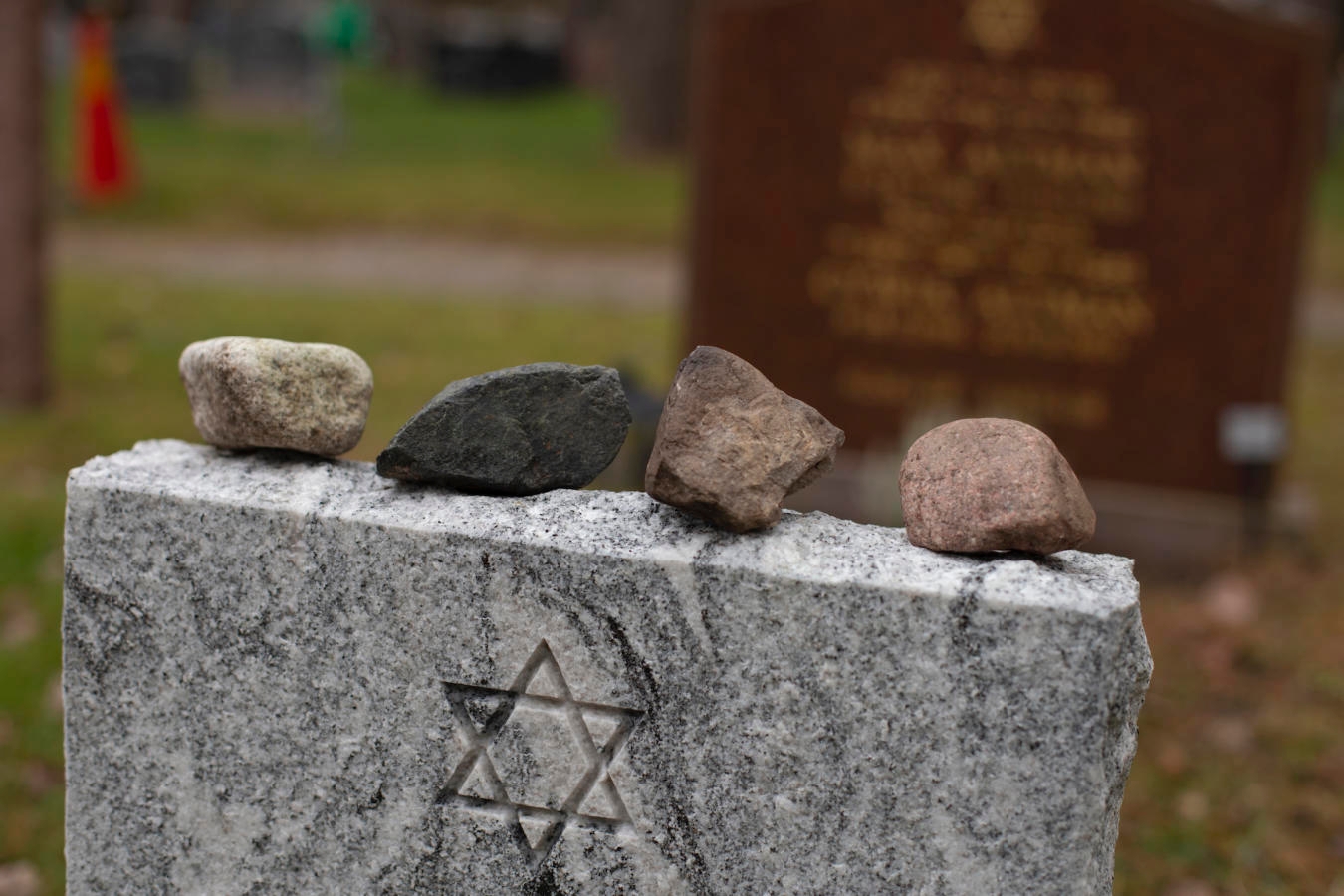The Mourner’s Kaddish is the quintessential prayer associated with a minyan (a prayer quorum of ten). One needs a minyan to recite it, and its entire structure is call and response. It is one of the few prayers in our liturgy that has the leader address other people in the room, as opposed to God, directly (“in your lives and in your days…You say: Amen!”). For this reason alone, it feels disorienting to consider reciting it without others.
So what are we to do about Mourner’s Kaddish in this topsy-turvy world without minyans?
In a time when we must be apart to protect one another from a novel and deadly virus, it is painful not being able to recite this prayer together with others. Even more so as, tragically, some members of our community sicken and die. Jewish tradition gets so many of the mourning practices right (surrounding the mourner in shiva, offering stages of mourning up to a year, etc.) — to have all that stripped away is extremely difficult for those who need community and regular liturgy right now.
There are recent rabbinic rulings that have permitted saying Kaddish with an online minyan. My purpose here is not to issue a legal opinion, but to offer alternative framings of Mourner’s Kaddish that might help in this moment.
With your help, My Jewish Learning can provide endless opportunities for learning, connection and discovery.
Kaddish as a microcosm for a way of life
There is an origin story of how Kaddish, a prayer originally said after study, became a mourner’s prayer. In that story, Rabbi Akiva tries to help save a dead man from eternal suffering. This dead man was no angel — in fact, he cheated the poor and killed them unjustly. In another version, he had intercourse with a woman engaged to another man, on Yom Kippur! His punishment was deserved. But Rabbi Akiva wants to help him.
He finds the man’s son, whom the community has rejected, and teaches him Torah from scratch. Finally, when the son knows how to lead the prayers before the congregation, read Torah publicly, and (in later versions) cue the response to Kaddish, the man’s suffering is abated. The Kaddish, it turns out, is not a magical formula recited by a child; it is a capstone to living a certain Jewish life, committed to Torah, study and prayer. Living the life is the real salve offered by the Kaddish. As our tradition teaches elsewhere: “R. Shimon ben Yohai said: Whoever has a son that toils in Torah, it is as if he has not died.” (Genesis Rabbah 49:4).
At the turn of the 20th century, Rabbi Malkiel Zvi Tannenbaum of Lomza was asked about a child who did not want to say Kaddish for his father. In answering the question, Rabbi Tannenbaum says that people have forgotten the big picture around the Kaddish:
The masses have thought that the essence is to lead davening and say Kaddish. And there are those who say as many Kaddishes as much as possible, but all day they do whatever they want. In truth, the essence is to increase Torah and good deeds, and keep away from forbidden things. And in this a child confers merit on his parent. (Divrei Malkiel 4:96)
Kaddish is not a zero-sum game. Honoring the deceased is really about living a certain life infused with Jewish tradition. In the absence of a minyan to say Kaddish there is still something perhaps more important mourners can do — commit to living that life as fully as possible.
Honoring One’s Parent in a Particular Way
Jewish tradition also suggests that Kaddish should not be the sole religious focus of one’s connection with the deceased, but rather one of many. One poignant statement from Rabbi Shlomo Ganzfreid (19thc. Hungary) indicated the best way to honor someone dearly departed was to perform a mitzvah that was particularly meaningful to the deceased:
Even though saying Kaddish and the prayers are beneficial for the (deceased) parents, nevertheless they are not the essence. Rather, the essence is that the children should act in a righteous manner, for in that way they benefit their ancestors…and a person should command his children to perform a certain mitzvah, and if they fulfil that mitzvah, it is considered more worthy than the Kaddish. (Kitzur Shulhan Aruch 26:22)
Again, we hear voices in the tradition saying that Kaddish — while important — is not the pinnacle of remembering the deceased. In this case, doing a mitzvah that was particularly important to the loved one can be something “even more worthy than the kaddish.”
A Liturgical Substitute for Kaddish
Finally, there is a long tradition of alternative texts to be recited for prayers that require a minyan — including Kaddish — when no minyan is available. The choice of these substitute texts is also significant in understanding what we are asking for when reciting the Kaddish — or its substitute.
In the 13th century in Germany, R. Yehudah He-Hasid, leader of the movement called Hasidei Ashkenaz, was the first to suggest an alternative text for Kaddish (although not specifically for the Mourner’s Kaddish):
A person who lives in a village and does not have a minyan to say “matters of holiness” [prayers that require a minyan], or one who lives in a place where there is a minyan, but he came late [to synagogue] after they had already said “yehei shmeh Rabbah” [another name for Kaddish], should say:
“Now please let YHVH’s power be great, as You said” (Numbers 14:17);
“I will make Myself great and I will make Myself holy, and I will be known among many nations, and they will know that I am YHVH” (Ezek. 38:23);
“May the name of YHVH be blessed from now until forever” (Psalms 113:2)(Sefer Hasidim 18, ed. Margolioth, p. 80).
This text reports on a practical situation where someone could not attend a minyan (either because they don’t live near enough Jews, or simply arrived late to services). In place of the normal prayer, Rabbi Yehuda He-Hasid recommends reciting three verses from the Bible, which are the basis for the main lines of Kaddish.
What is the significance of these verses? We see that they are actually requests — not praises — in which the worshiper hopes for a new world, in which God is made great and holy. Perhaps most strikingly, God is not yet fully great or holy – the worshiper is asking for God’s greatness to emerge.
The world we live in now is lacking God’s greatness, as evidenced by our loss and grief. Saying these verses gives voice to the desire to pray for a renewed world, one that is better in the future.



